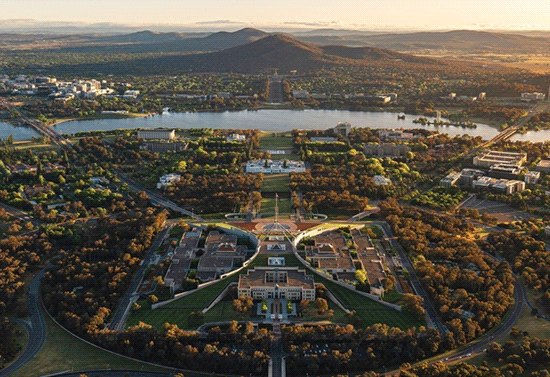Canberra restaurants on brink of closure as cost of living crisis continues

Otis Dining Hall owner Damien Brabender believes life for those in hospitality has become harder since the COVID-19 pandemic ended.
Brabender, who has operated his restaurant in Canberra for eight years told the ABC, "At the moment, 99 per cent of it's just horrifically sad news, people closing, people downsizing, people considering pulling the pin.
"Bankruptcies, it's become kind of the buzz word in hospitality at the moment.
"I mean, if you think it's expensive at the supermarket, try going to a wholesaler, it's twice as bad," Brabender said.
"When we're looking at our raw products coming in the door, some of them have gone up by 100-150 per cent literally, in the last two years, the only way that we can put them on a menu is by charging an exorbitant price.
"Ten years ago, you'll be aiming for a 15 per cent profit margin. At the moment, if you're getting a profit margin at all, you're lucky, but most people are looking below 5 per cent."
Rising costs, skill shortages and cancellations are also biting and Brabender believes the next 12 months will be even worse.
"And once we see more businesses close, more businesses downsize, a lot of the people that have opened these businesses, that have spent their whole life working towards that dream, are going to leave the industry."
According to the ABC report, it is a dire situation in Canberra.
Miss Van’s, a popular Vietnamese restaurant in Canberra, has closed its doors, joining other local dining spots like Aubergine, Temporada, and XO, which have also shut down recently. Owner Andrew Duong cited rising costs and low disposable income as key reasons for the closure, despite a recent increase in patronage. Duong highlighted the impact of the Ukraine war on supply costs, noting a sharp increase in oil prices from $50 to $120 per drum, with prices remaining high.
This trend reflects a broader national issue, as a report from CreditorWatch warns that one in 11 food and beverage businesses in Australia may close within a year.
The hospitality sector is also grappling with staff shortages, as Jobs and Skills Australia forecasts a need for an additional 21,400 workers, including waitstaff, baristas, and bartenders, by 2028.
Further complicating matters, Wes Lambert of the Australian Restaurant and Café Association, expressed concerns over changes in Australia’s migration framework, which may exacerbate workforce availability issues.
"There are figures that say up to 20 per cent of workers in the entire hospitality industry are visa holders and 36 per cent are non-Australians, the industry does rely on temporary working holiday makers, international students and skilled migrants," Lambert said.
"In places like Canberra, it can be as many as 50 per cent."
Lambert said there is a light at the end of the tunnel for Canberra businesses, but while interest rates are high closures will continue.
A different approach to operations could stem the bleeding.
Facing the same challenges as others in the industry, Anand Kumar Ramakrishna closed his popular restaurant XO in October 2023. Rising costs and sustainability issues forced him to reconsider his dream of running a modern Southeast Asian eatery the way he had envisioned. “A dream is a dream, but if you keep doing this, everything else is going to get sacrificed,” Ramakrishna reflected.
Rather than leaving hospitality, he’s downsized to a smaller, personal venture called AK’s. Ramakrishna told the ABC he is excited to continue cooking, focusing on simplicity and personal interaction with customers. At AK’s, he prepares, serves, and engages directly, letting the food "speak for itself," without needing a large team or costly setup. "The whole idea of pivoting… is just working with the resources I have,” he said, adding that the limited takeaway format allows him to create a smaller, adaptable menu that emphasises his passion for cooking and community.
Jonathan Jackson, 6th November 2024







